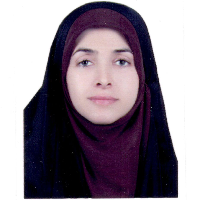Analyzing the historical course of commentators' comments on the verse of "annexation of the offspring"
One of the blessings of the believers in Paradise referred to the verse 21 of Surah “alTur” is the annexation of their offspring on condition that they follow them in faith. Commentators have expressed differing views on What does the word "Zurriyyah" (offspring) mean and on what terms they can join their fathers. It is important to address this issue because how and the terms of this annexation, can play an important role the worldly function and otherworldly expectations of the Muslim. For example, if the understanding of this verse is that believers can join their believer ancestors in Paradise, the motivation to perform and increase the righteous acts among the children of believers is reduced and it is assumed that Muslims They can attain the highest levels of Paradise among their ancestors by attaining a minimal level of faith. Analyzing the commentators' comments suggests that the most appropriate conception of the verse is that we should first, refer “Zurriyyah” only to the children, not to the later generations, and annexation to the meaning of companionship, not to being equal in degree.
-
Meta-Analysis of Articles from the Biannual ‘Journal of Qur'anic Stylistic Studies’ (Volumes 5 to 7)
Fatemeh Hajiakbari *, Alireza Hosseini
Journal of Stylistic Studies of the Holy Quran, -
The role of interpretive continuity in a more comprehensive understanding of verses: a case example of verse 104 of Surah Taha
Ali Ahang *,
Journal of Ketab - e - Qayyem, -
Analyzing the effectiveness of ancient Persian literature from Quranic teachings; A case study of the intertextuality of Qabusnameh and the Qur'an
Sayedmahdi Rahmati *, Fatemeh Hajiakbari
Journal of Quran and Religious Enlightenment, Spring and Summer 2024 -
Identification of Imam Ali (AS) personality type based on Imam's words in Nahj al-Balaghah using MBTI model
*, Fatemeh Hajiakbari
Journal of Ketab - e - Qayyem,




